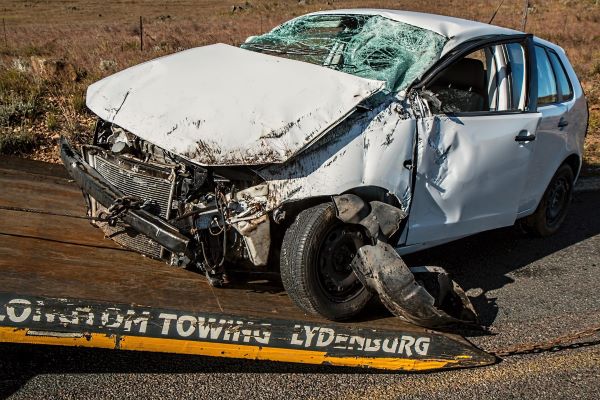Massachusetts OUIs are serious and come with severe penalties, including suspension of your driver’s license. But there are some cases, however, where you may have the option to apply for a hardship license. Having your license suspended or revoked is difficult and can have a significant impact on your life and your career.
A hardship license—also referred to as a “Cinderella License”—allows you to drive legally if your license has been suspended as a result of an OUI/DUI among other reasons. You are not guaranteed this license, however, and you must meet certain criteria prior to attending a hearing with the Massachusetts Registry of Motor Vehicles (RMV) to request a hardship license.
Eligibility for a Hardship License in Massachusetts
Although there are other reasons for a license suspension or revocation, the following are instances when you may be eligible for a hardship license after an OUI/DUI license suspension:
1st Offense OUI/ 24D Disposition
 An OUI first offender is presumed to qualify for an alternative disposition known as a 24D Disposition. Basically, if you are charged with a first-time OUI/DUI, the option of a 24D Disposition may be offered with the entering a guilty plea or guilty conviction. The 24D disposition will allow you to avoid the more harsh penalties that come with a first offense OUI if you agree to complete an alcohol awareness program. The 24D Disposition enables you to apply for a hardship license much faster, as soon as three days after the case disposition (entry of Continued Without a Finding or guilty) instead of the normal three-month wait period for a first offense OUI. You must still meet certain criteria, however, for example:
An OUI first offender is presumed to qualify for an alternative disposition known as a 24D Disposition. Basically, if you are charged with a first-time OUI/DUI, the option of a 24D Disposition may be offered with the entering a guilty plea or guilty conviction. The 24D disposition will allow you to avoid the more harsh penalties that come with a first offense OUI if you agree to complete an alcohol awareness program. The 24D Disposition enables you to apply for a hardship license much faster, as soon as three days after the case disposition (entry of Continued Without a Finding or guilty) instead of the normal three-month wait period for a first offense OUI. You must still meet certain criteria, however, for example:
- No evidence of driving since the suspension
- All other suspensions are complete
- Documented enrollment in an alcohol education program
- Documented, legitimate hardship
2nd Offense OUI/ Cahill Disposition
Those that have been convicted of a second offense OUI may be eligible to have the OUI treated as a first time offense if the first offense was more than ten years ago. Known as a Cahill Disposition, you are eligible for a hardship license as in the 24D Disposition as long as you meet:
- The criteria for a first Offense OUI
- You have only one prior OUI offense that occurred more than ten years ago
- Installation of an ignition interlock device into your vehicle
If you are not eligible for a Cahill Disposition, and have been convicted of a second OUI, you may still be granted a hardship license by showing the following:
- The criteria for first offense OUI have been met
- The predetermined minimum amount of time for OUI has been served which is dependant upon the amount of time the license was suspended
- Documented proof of completion of the proper alcohol treatment program (two week in-house program for second offense)
- Discharge summary from the treatment program
- You are in compliance with your probation
- Proof of compliance with all ordered after-care
- Installation of an ignition interlock device
3rd or Multiple Offense OUI
There are cases where a hardship license will be granted for third and subsequent OUIs in Massachusetts. However, multiple OUI/DUI convictions makes it increasingly difficult to obtain a hardship license. For a third or more OUI conviction you must show:
- The criteria for a first and second offense OUI has been met
- Documented proof of completion of the proper alcohol treatment program (90 day in-house program for third and fourth offenses)
Hardship Licenses are Not a Right
It is important to understand that a hardship license is not a right. It is granted at the discretion of the Massachusetts RMV after you have shown, through sufficient proof, that a hardship license is needed for work, school, or for medical appointments.
It is not enough to simply show that the hardship license would be helpful. You must show proof that it is, in fact, needed and that public transportation is not sufficient to meet your obligations for work, school, or medical appointments. Speaking with an attorney before your hearing will help ensure you are prepared with all of the proper documentation and proof that a hardship license is needed. In addition, you must also show that you are not dangerous to others while on the road and that providing you with the hardship license will not pose a threat to others’ safety.
Options if You are Denied a Hardship License
 Having your license suspended or revoked can be a big challenge and inconvenience for many. A hardship license will help provide you with transportation for necessary obligations such as to and from work, school, or medical appointments. What if the RMV denies your request for a hardship license, however?
Having your license suspended or revoked can be a big challenge and inconvenience for many. A hardship license will help provide you with transportation for necessary obligations such as to and from work, school, or medical appointments. What if the RMV denies your request for a hardship license, however?
If your hardship license request is denied by the RMV, you have the right to appeal to the Massachusetts RMV Board of Appeal. The Board of Appeal has the authority to overrule the RMV’s denial. It is imperative to be prepared with the proper documentation and evidence when attempting to appeal to the Board of Appeal, however.
Contact a Knowledgeable Attorney as Soon as Possible
Driving is a privilege. Once that privilege is taken, you may find it more difficult to accomplish things such as going to and from work, school, medical appointments, or even driving family members or children to their obligations. Although Massachusetts law is strict and the penalties harsh after an OUI/DUI offense, there are steps you may be able to take to regain a portion of your driving privilege through a hardship license. Contact OUI Attorneys to connect with a lawyer to discuss your circumstances and need for a hardship license. The team’s experienced OUI/DUI defense attorneys can provide strong legal representation through the hardship license process.


